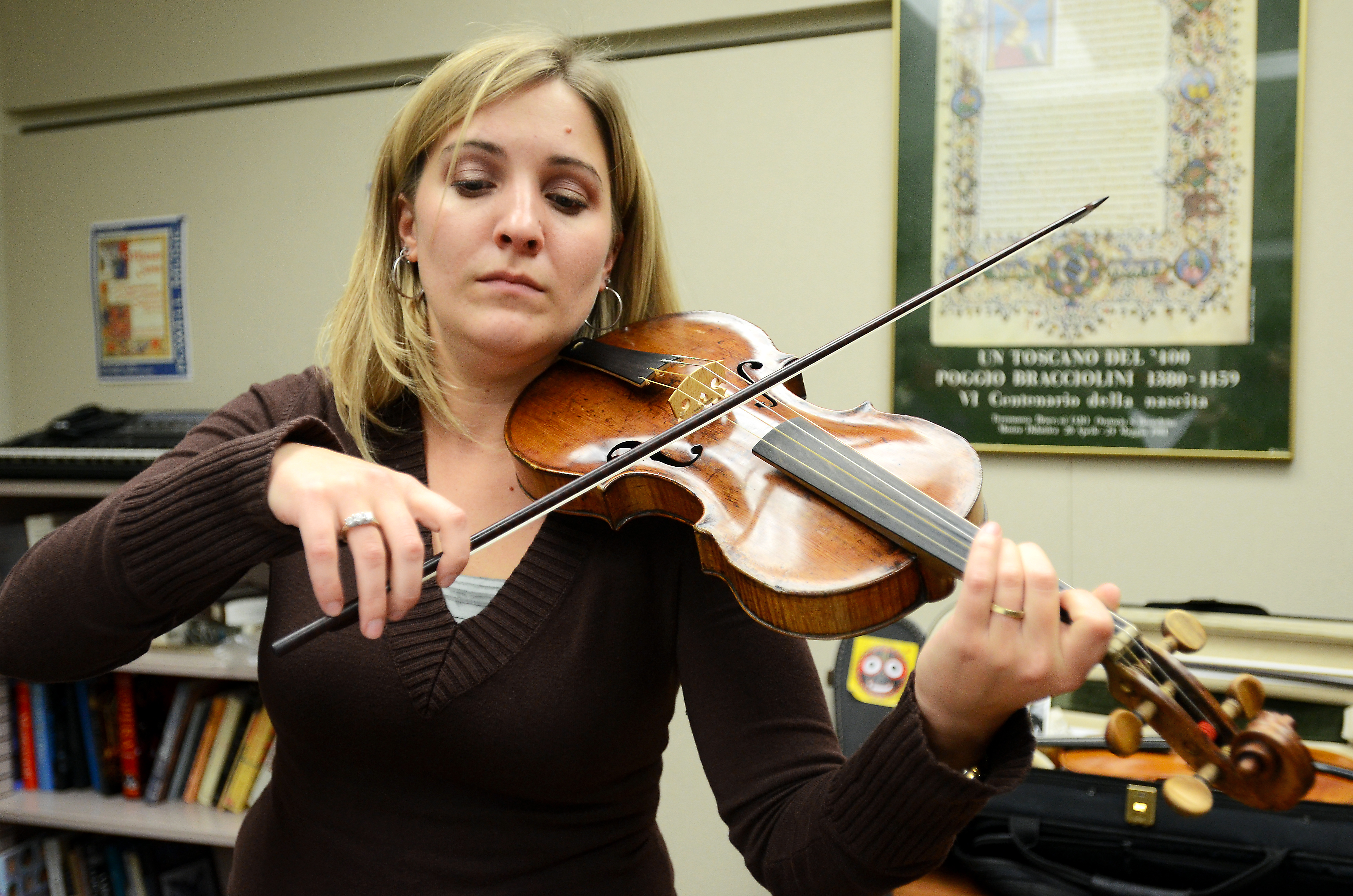UCLA Early Music Ensemble to play 17th century Baroque pieces in Powell Music Series

The UCLA Early Music Ensemble, led by conductor and director Lindsey Strand-Polyak, will perform as part of Powell Library’s Music Series.
Early Music Ensemble
Today, 8 p.m.
Powell Library Rotunda, FREE
By Michael Palumbo
Nov. 18, 2011 12:28 a.m.
Before the UCLA Early Music Ensemble began practicing its piece by Heinrich Ignaz Franz Biber, conductor and director Lindsey Strand-Polyak told her students that she came across a misspelling of one of Baroque’s most famous violinists with the spelling “Bieber.”
After Strand-Polyak joked that the ubiquitous Justin Bieber may be related to Biber, the group laughed and began playing a piece that could not be more different than Bieber’s popular music.
The Early Music Ensemble, which will be playing a free concert in the Powell Library Rotunda tonight, will be showcasing 17th century Baroque pieces from German and Austrian regions that may be unfamiliar to listeners, even for classical music lovers.
Cathy Brown, a coordinator for the Powell Music Series, said that early music lends itself to the space in Powell Library.
“Powell Library is an interesting experience because it’s not a stage, so there’s a different audience and performer interaction which isn’t offered in large music halls,” Brown said.
Strand-Polyak, a current doctoral candidate in musicology who is working on her master’s degree in violin performance at UCLA, is directing the Early Music Ensemble, which recently restarted at UCLA in 2009 after being inactive since 1989. This is the first year that the ensemble will hold performances all three quarters, with the students participating getting class credit.
Musicology Professor Elisabeth Le Guin, who is supervising Strand-Polyak’s work, as well as performing in the concert, said that early music is not standard concert material because it was not written for large symphonies, which came into fruition after this early music era.
“If it’s well played, audiences love it. It’s music on a much smaller scale and it’s more intimate and can be very dramatic,” Le Guin said.
Le Guin said that each person in the ensemble has a different experience level with very different backgrounds, and Strand-Polyak worked to find early music that would suit everyone’s skill set. The ensemble practiced three hours a week for two concerts this quarter, the second of which is being held at the Clarke Memorial Library as part of a Los Angeles County Museum of Art exhibit, “Contested Visions in the Spanish Colonial World.”
Carlos Toro, a third-year musicology student and guitar player for the ensemble, said he joined because he wanted the opportunity to perform at UCLA.
“I wanted hands-on experience. … I didn’t know how to read music at first, but the music caught my attention and even though it isn’t my style, the music keeps getting better and better,” Toro said.
The performers of the Early Music Ensemble, composed of violinists, violists, cellists, flutists, keyboardists, a harpist, a guitarist and an organist, will also be playing these earlier pieces with the instruments played during this time period, including Baroque flutes and smaller Baroque bows and instruments for the string players.
“One of the challenges of performing early music is that almost all the members are new, so they are not used to the different strings or playing without a chin rest (on violins and violas),” Strand-Polyak said.
She also said that the Baroque flutes that the performers are using are smaller and have fewer keys, which the flute players had to get used to.
According to Strand-Polyak, since the music is not as developed, she and the performers were able to take liberty with adding dynamics, slurs and different musical interpretations to the pieces.
“The writers themselves were performers, and I think they trusted their peers with the music … so the music-making was put in the hands of all of the performers,” Strand-Polyak said.

